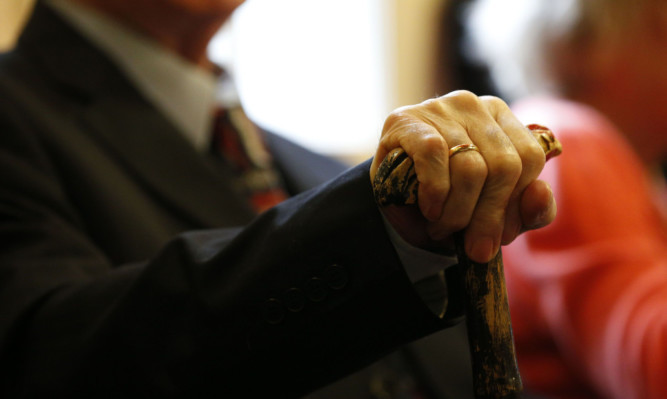Health spending should be frozen and funds diverted to improving care for the elderly in order to ease the pressure on hospital services, according to the body representing independent social care services.
Scottish Care has called for politicians to tackle the “taboo” of NHS expenditure ahead of the organisation’s annual conference in Glasgow.
The body said investment in better social care for the elderly would help to reduce emergency hospital admissions and free up NHS staff, as well as improve the lives of older people.
Research commissioned by the organisation found that in 2012-13, the average emergency admission for over-65s lasted for 11.8 days at an average cost of £4,846.
That amount could fund either care at home for a week for 27.7 older people or 9.28 weeks in a residential care home for one pensioner, the report said.
It highlights that unscheduled admissions for over-65s amount to a third of the £4.5 billion spent on health and social care for older people.
Ranald Mair, chief executive of Scottish Care, said: “All politicians want to be seen as defenders of the NHS.
“Freezing health spending or reducing hospital capacity is a taboo subject.
“However, by diverting funds to care at home and other social care provision, more and better services can be provided, helping reduce the number of needless hospital admissions.
“The evidence suggests that maintaining NHS expenditure whilst cutting social care simply results in more unnecessary admissions to hospital.
“It could be the time for politicians to tackle this head on.
“With an increasingly ageing population, the problems will get worse as demands on the NHS increase.”
The report also found that more hours of care at home have been provided by fewer staff over the past decade while pay rates in the sector are below the Scottish average.
Scottish Conservative health spokesman Jackson Carlaw said: “This is a further example of the need for a long-term plan by an all-party consensus on a way forward for health in Scotland.
“We need a strategy to achieve a sustainable future for Scotland’s NHS and to ensure that some of the £800 million arising from the UK Government’s commitment to the NHS are utilised to achieve this and not squandered.
“Investing in care at home of the elderly must form part of this plan.”
